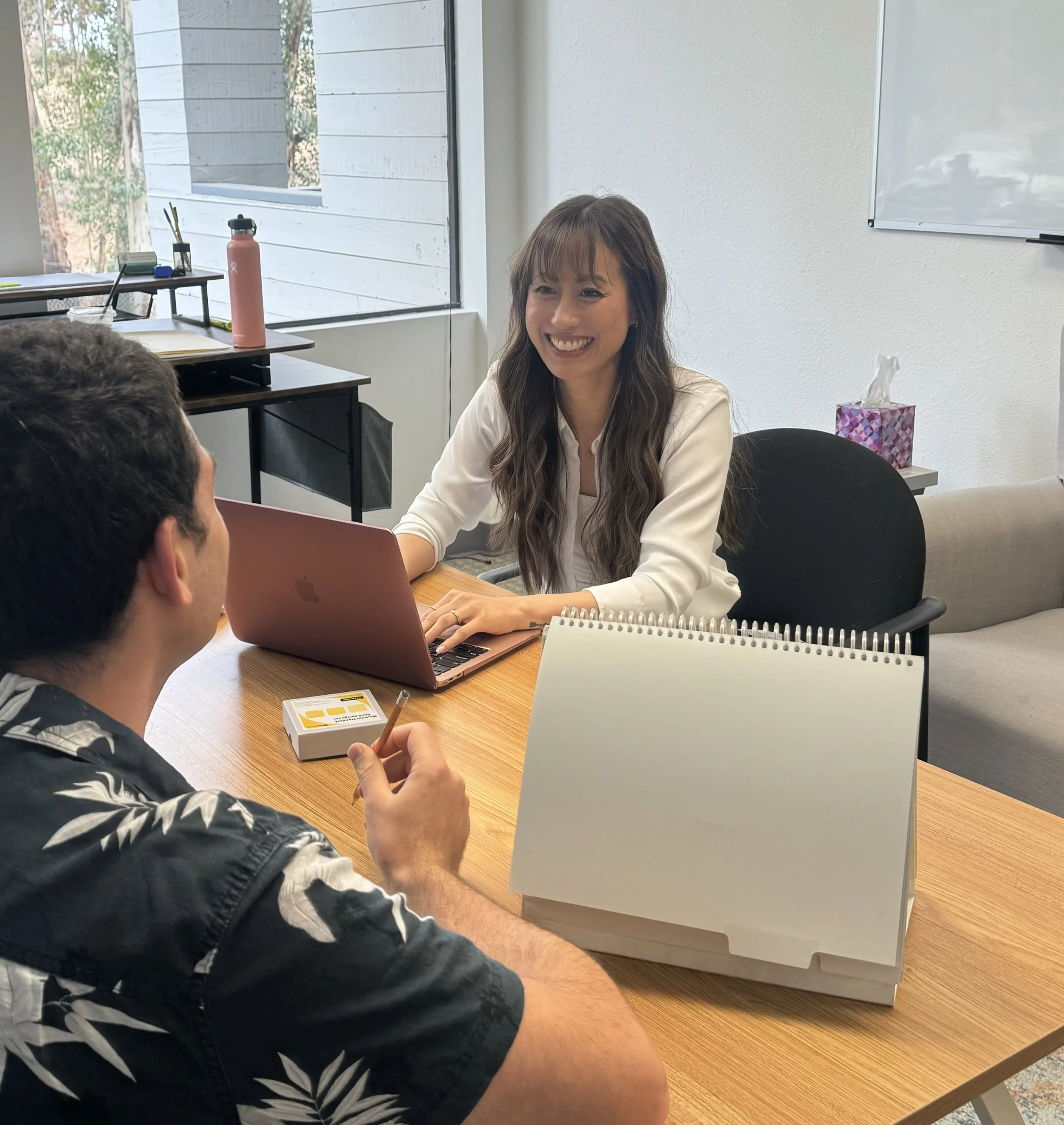Does A Diagnosis Really Matter?
Kelly Anderson, PhD
When working with clients, it is not uncommon for them to share that they don't feel the need to obtain a diagnosis. They often worry that the diagnosis will become a label and that this label will define them. I believe we tend to pathologize anything that does not appear to be “typical.” Concerns, thoughts, emotions, and feelings that occur naturally are often labeled as part of a condition or issue that needs to be changed. This can be very alienating, and as mental health continues to be so stigmatized, these concerns are valid. However, beyond needing a diagnosis for medical billing, accurate diagnoses can provide value in many other ways. Below are my thoughts on how and why obtaining an accurate diagnosis and understanding what that means for you is important!
You already know something’s different. So why bother getting a diagnosis?
Maybe you’ve been certain for years that you have ADHD. Maybe you saw a TikTok about autism and thought, “Wait, that’s me!” Or maybe you’ve been living with anxiety or depression for so long that it feels like second nature. If you already know what’s going on with your mental health, what’s the use in getting a diagnosis?
You don’t need a diagnosis for your pain or experiences to be valid. However, a diagnosis can still give you something powerful: understanding, clarity, options, and support that might not otherwise be available to you. For people who have spent years being overlooked or misdiagnosed (especially women, BIPOC, and LGBTQ+ folks), getting that clarity can be a radical, healing act.
Diagnosis Can Be Deeply Validating
Many people, especially those from marginalized groups, have been told their whole lives that they’re “too sensitive,” “lazy,” or “making a big deal out of nothing.” A formal diagnosis can provide language and structure that finally explains what you've been experiencing. It can be the moment where you realize it wasn’t all in your head, you weren’t making it up, you’re not being dramatic, and you’re not alone.
Diagnosis can help reframe your story. Instead of internalizing blame and shame, you begin to understand the way your brain works. Your brain’s wiring may be different, but it doesn’t mean something is wrong with you. I’ve seen time and again how the shift from shame to self-compassion can make a world of difference in someone’s life. It allows room for gentleness, promotes self-acceptance, and reduces negative self-talk.
Diagnosis Helps Inform Treatment
Knowing what you’re dealing with helps you figure out how to care for it. A formal diagnosis can:
Guide what type of therapy will be most helpful (e.g., CBT vs. DBT vs. trauma-informed care)
Determine whether medication might help, and what kinds
Clarify what kinds of accommodations you can ask for at work or school
Offer a roadmap for skill-building, coaching, or psychoeducation
For example, ADHD and depression can both make you feel unmotivated. If you’re diagnosed with ADHD, the solution might focus more on structure and executive functioning tools than mood-focused treatment, as it would be with depression. If you’re autistic, working with a therapist who understands neurodivergence might make a bigger difference than generalized therapy ever could. Diagnosis lets you and your supports target how to best approach making change.
“I Already Know I Have [X]. Why Do I Need It Diagnosed?”
This is a valid question, especially when the process can feel time-consuming or expensive. However, a formal diagnosis can provide you with options and protections that you may not have otherwise. These can include:
Eligibility for school or workplace accommodations (under laws like the ADA)
Access to specific services and supports (like IEPs, social skills groups, or psychiatric care)
Better communication and coordination with providers
Documentation for disability benefits, legal rights, or housing access
Access to free programs and benefits from city, state, and government funding sources
You may already be clear about your diagnosis internally, but formal recognition makes that knowledge harder to dismiss by others, especially in systems that rely on paperwork.
How to Get a Diagnosis (And Why a Psychological Evaluation Can Be So Helpful)
There are a few paths to getting a diagnosis:
Talking with a psychiatrist or prescribing provider
Receiving a diagnostic impression from a therapist or psychologist
Getting a psychological or neuropsychological evaluation
While any of these can help, psychological testing offers the most thorough and tailored insights. These evaluations:
Use structured interviews, standardized testing, collateral information, and clinical observation
Provide clear data on cognitive strengths, weaknesses, and diagnostic criteria
Offer detailed recommendations for treatment, support, and accommodations
Neuropsychological assessments are especially helpful when symptoms are complex or overlapping (e.g., trauma + ADHD, or ASD + anxiety). These evaluations don’t just tell you if you meet the criteria for something. They tell you how it shows up in your life and what to do about it.
While testing can be very pricy as many providers do not accept insurance, I believe that thinking about this as an investment in your future helps to as a way of accepting the cost if you have to pay out of pocket.
A Diagnosis is Just the Beginning
You are not just chasing a label. You’re seeking understanding, language, and care that actually fits. A diagnosis doesn’t define you, instead, it can empower you. It can help you advocate for what you need, explain yourself with confidence, and stop wasting energy on wondering, second-guessing, or blaming yourself.
If you’re curious about a formal diagnosis—whether for ADHD, autism, depression, anxiety, or something else—know that support is available!
Interested in a Psychological Evaluation?
At Wellness Therapy of San Diego, we provide compassionate, affirming, comprehensive psychological assessments designed to give you answers, validation, and a clear path forward. Reach out today to learn more about our process!


